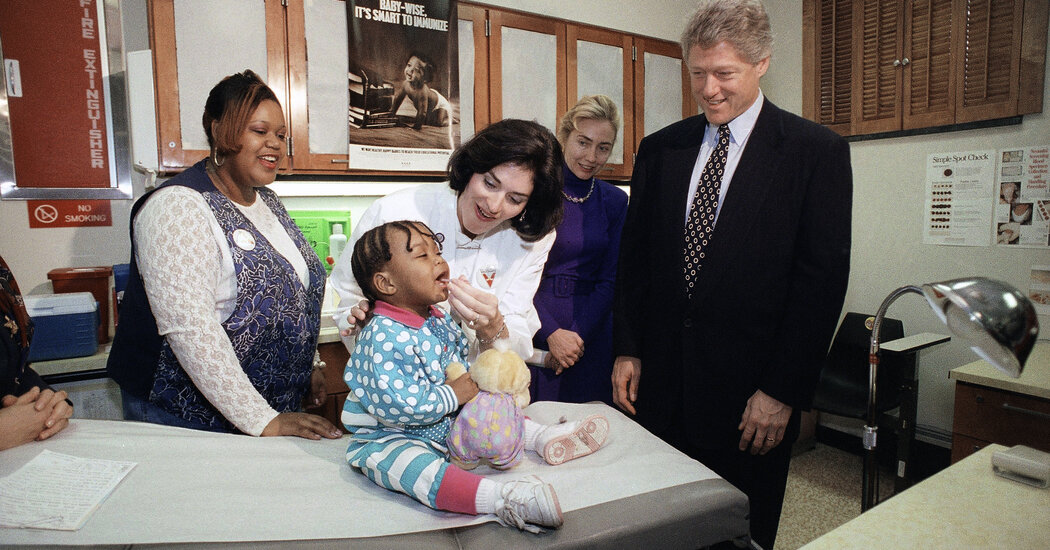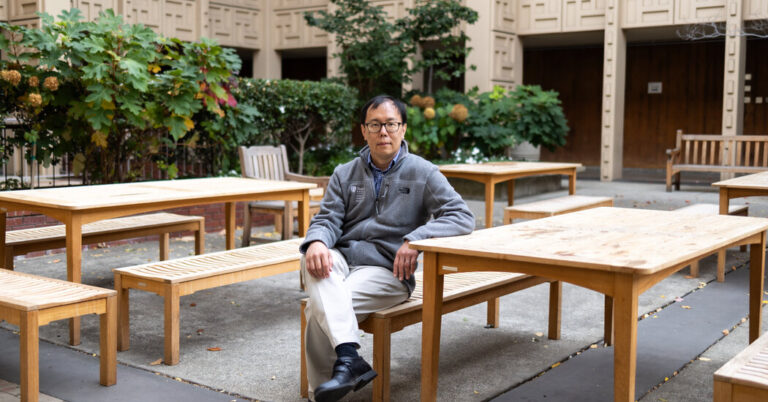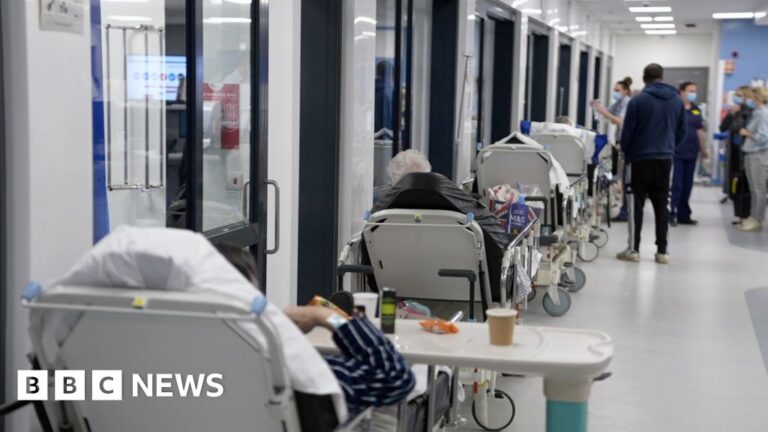Here is the text only, without the HTML elements and other noise:
When President Bill Clinton worked with a bipartisan Congress to enact a federal program to guarantee vaccines for poor children, they agreed that the authority over buying shots from drug makers should rest with the health secretary. The bill’s drafters did not consider that an extremely vocal critic of childhood vaccines would emerge as a nominee for the role.
That critic, Robert F. Kennedy Jr., comes before the Senate for confirmation hearings this week. If confirmed, he would have the power to limit or even cut off contracts with the makers of vaccines for more than half the nation’s children under the $8 billion dollar Vaccines for Children program.
The program has been credited with raising national vaccination rates and protects nearly 38 million low-income and working-class children from diseases like polio, measles, whooping cough and chickenpox.
Mr. Kennedy has said he would not take vaccines away from anyone, but he has a long history of questioning vaccine safety. The far-reaching authority he would wield over vaccine policy has become increasingly worrisome for public health experts, researchers and lawmakers from both parties.
Some architects of the program are trying to persuade senators to oppose his nomination.
“I think he’s dangerous to children’s health,” Donna E. Shalala, Mr. Clinton’s health secretary and a former Democratic congresswoman, said in an interview.
For decades, Mr. Kennedy has sown doubts about the safety of vaccines and their ingredients. In 2021, he petitioned federal officials to revoke authorization of all coronavirus vaccines at a time when thousands of Americans were dying each week from Covid.
His activism has made lawmakers in both parties uneasy. Several Republican senators, including Mitch McConnell of Kentucky, Lisa Murkowski of Alaska and Bill Cassidy of Louisiana, have suggested they are on the fence about how to vote.
Mr. McConnell, a polio survivor and former Republican leader, has said that anyone who engages in “efforts to undermine public confidence in proven cures” will face difficulty in getting Senate confirmation. Mr. Cassidy, a doctor and chairman of the HELP Committee, has not said how he will vote. Ms. Murkowski told CNN that she had concerns, adding, “Vaccines are important.”
The Vaccines for Children program was created in response to measles outbreaks that disproportionately affected poor children who could not afford vaccinations. It now protects against 19 diseases, according to the Centers for Disease Control and Prevention.
Federal officials “control the whole means of supply and distribution,” according to Sara Rosenbaum, a professor emerita of health law and policy at George Washington University, who was asked by the Clinton administration to build the program.
Who would have ever thought that it was a problem giving the secretary this kind of power?” she asked.
Lawyers who specialize in vaccine policy pointed to other areas where the nation’s health secretary has authority over vaccines. One is the Vaccine Injury Compensation Program, which was set up in 1986 to shield vaccine makers from liability and to create a court system to compensate people harmed by vaccines.
Ms. Hill said it would also be possible for the Trump administration to try to place conditions on the funds for the children’s vaccine program, such as dropping its mandate for students entering kindergarten to be immunized.
The secretary would also have the authority over an influential advisory panel at the C.D.C. called the Advisory Committee on Immunization Practices or A.C.I.P. The committee could be disbanded, according to Mr. Hughes. The secretary could also revisit vaccine-safety matters and reject the committee’s recommendations.
That committee tends to influence state-level policy, doctors and private insurers. But it has more direct authority over which vaccines are distributed by the children’s program.
Source link




